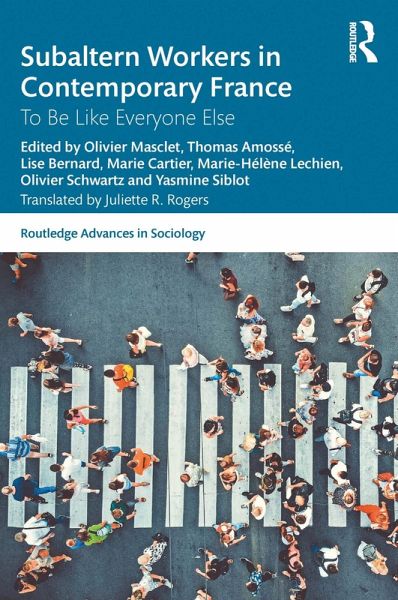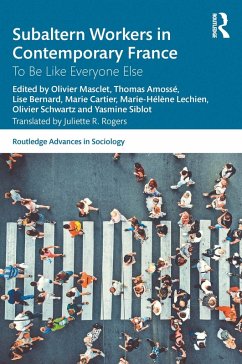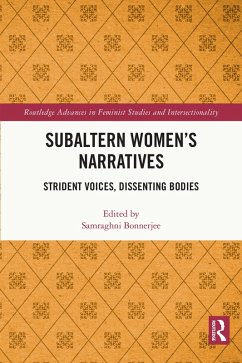
Subaltern Workers in Contemporary France (eBook, PDF)
To Be like Everyone Else
Redaktion: Masclet, Olivier; Siblot, Yasmine; Schwartz, Olivier; Lechien, Marie-Hélène; Cartier, Marie; Bernard, Lise; Amossé, Thomas
Versandkostenfrei!
Sofort per Download lieferbar
37,95 €
inkl. MwSt.
Weitere Ausgaben:

PAYBACK Punkte
19 °P sammeln!
This volume explores the lives and work of those who are kept out of poverty by their employment, but who occupy tenuous social positions and subaltern jobs.Presenting a score of household portraits - urban, suburban, and rural - the authors examine what it means to 'get by' in France today, considering the material and symbolic resources that these households can muster, and the practices that give meaning to their lives. With attention to their aspirations and disappointments - and their desire to be 'like everyone else' in a supposedly egalitarian society that nonetheless gives them little ...
This volume explores the lives and work of those who are kept out of poverty by their employment, but who occupy tenuous social positions and subaltern jobs.
Presenting a score of household portraits - urban, suburban, and rural - the authors examine what it means to 'get by' in France today, considering the material and symbolic resources that these households can muster, and the practices that give meaning to their lives. With attention to their aspirations and disappointments - and their desire to be 'like everyone else' in a supposedly egalitarian society that nonetheless gives them little credit for their effort - this book offers a sociological interpretation of their situations, offering new insights into what it means to be 'working class' in a 21st-century post-industrial society. Combining statistical analyses with ethnographically-based examinations of how changes in the structure of the employment market relate to plans for upward mobility, Subaltern Workers in Contemporary France sheds light on the ways in which class identity - along with all its associated practices, tastes, and aspirations - has changed since the sociological classics on the working classes were published over half a century ago.
As such, this book will appeal to sociologists with interests in the sociology of the family, social class, and the sociology of work.
Presenting a score of household portraits - urban, suburban, and rural - the authors examine what it means to 'get by' in France today, considering the material and symbolic resources that these households can muster, and the practices that give meaning to their lives. With attention to their aspirations and disappointments - and their desire to be 'like everyone else' in a supposedly egalitarian society that nonetheless gives them little credit for their effort - this book offers a sociological interpretation of their situations, offering new insights into what it means to be 'working class' in a 21st-century post-industrial society. Combining statistical analyses with ethnographically-based examinations of how changes in the structure of the employment market relate to plans for upward mobility, Subaltern Workers in Contemporary France sheds light on the ways in which class identity - along with all its associated practices, tastes, and aspirations - has changed since the sociological classics on the working classes were published over half a century ago.
As such, this book will appeal to sociologists with interests in the sociology of the family, social class, and the sociology of work.
Dieser Download kann aus rechtlichen Gründen nur mit Rechnungsadresse in A, B, BG, CY, CZ, D, DK, EW, E, FIN, F, GR, HR, H, IRL, I, LT, L, LR, M, NL, PL, P, R, S, SLO, SK ausgeliefert werden.













